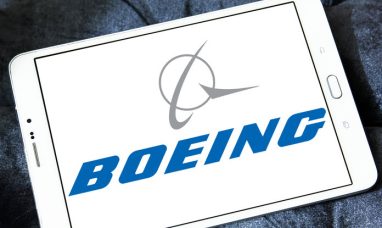Eli Lilly and Company (NYSE:LLY) has taken a significant step in addressing the obesity epidemic by launching discounted versions of its popular obesity drug, Zepbound. As part of this strategic move, Lilly introduced single-dose vials of Zepbound, priced significantly lower than competing GLP-1 medications. The Zepbound launch is poised to enhance access to effective obesity treatment, particularly for patients without insurance coverage.
Affordable Access through the Zepbound Launch
The Zepbound launch comes in response to overwhelming demand for obesity treatments. To address supply shortages, Eli Lilly has introduced 2.5 mg and 5 mg single-dose vials, available at $399 and $549 respectively for a four-week supply. This pricing strategy undercuts the list prices of similar GLP-1 medications by at least 50%, making Zepbound a more accessible option for many patients.
These new single-dose vials are available through Lilly’s direct-to-consumer platform, LillyDirect, enabling patients with valid prescriptions to purchase the medication directly. This move is expected to alleviate the need for compounded versions of tirzepatide, which have raised safety concerns due to their lack of FDA approval.
Impact on the GLP-1 Market
The Zepbound launch is a significant development in the competitive landscape of the GLP-1 market. Lilly’s tirzepatide-based medications, including Zepbound and Mounjaro, have already made a substantial impact, generating nearly $6.7 billion in sales during the first half of 2024. This figure represents 44% of Eli Lilly’s total revenue, underscoring the importance of these drugs to the company’s financial health.
Despite facing intense competition from Novo Nordisk (NYSE:NVO), which markets semaglutide under the brand names Ozempic, Rybelsus, and Wegovy, Eli Lilly has managed to strengthen its market position. Novo Nordisk has struggled to meet the rising demand for its obesity treatments, giving Lilly an edge. The Zepbound launch further solidifies Lilly’s leadership in this market, potentially pressuring Novo Nordisk and other competitors like Viking Therapeutics (NASDAQ:VKTX) and Amgen (NASDAQ:AMGN).
Zepbound Launch Enhances Eli Lilly’s Market Strategy
Eli Lilly’s strategy extends beyond the Zepbound launch, with the company investing heavily in its obesity treatment pipeline. Lilly has 11 new molecules in clinical development, including two late-stage candidates, orforglipron and retatrutide. These developments underscore Lilly’s commitment to maintaining its leadership in the obesity treatment market.
The Zepbound launch is part of a broader effort by Lilly to improve the supply of its obesity drugs, which faced shortages earlier in the year. The company has made substantial investments in upgrading and expanding its production facilities in the United States and Europe. As a result, Lilly now has better visibility into its production plans for the remainder of the year, including potential international launches of Mounjaro.
Competitor Responses to the Zepbound Launch
Lilly’s competitors are closely watching the impact of the Zepbound launch. Viking Therapeutics, for example, is developing VK2735, a new obesity treatment that has shown promising results in early trials. However, the Zepbound launch has increased pressure on Viking, whose stock recently declined by 6.2% as investors reacted to Lilly’s aggressive expansion.
Similarly, Amgen is advancing its GLP-1 receptor candidate, MariTide, through clinical trials. The company is expected to release top-line data from a phase II study by late 2024 and plans to begin a phase III program for obesity and type II diabetes soon after. The Zepbound launch adds a new dynamic to Amgen’s competitive landscape, emphasizing the need for differentiation in a crowded market.
Conclusion: A Strategic Move for Eli Lilly
The Zepbound launch represents a strategic milestone for Eli Lilly, reinforcing its leadership in the rapidly growing obesity treatment market. By offering more affordable options and improving supply chains, Lilly is not only meeting the needs of its customers but also positioning itself for continued success in a competitive industry. The Zepbound launch is likely to have a lasting impact, both on Lilly’s bottom line and on the broader healthcare landscape.
Featured Image: Freepik









